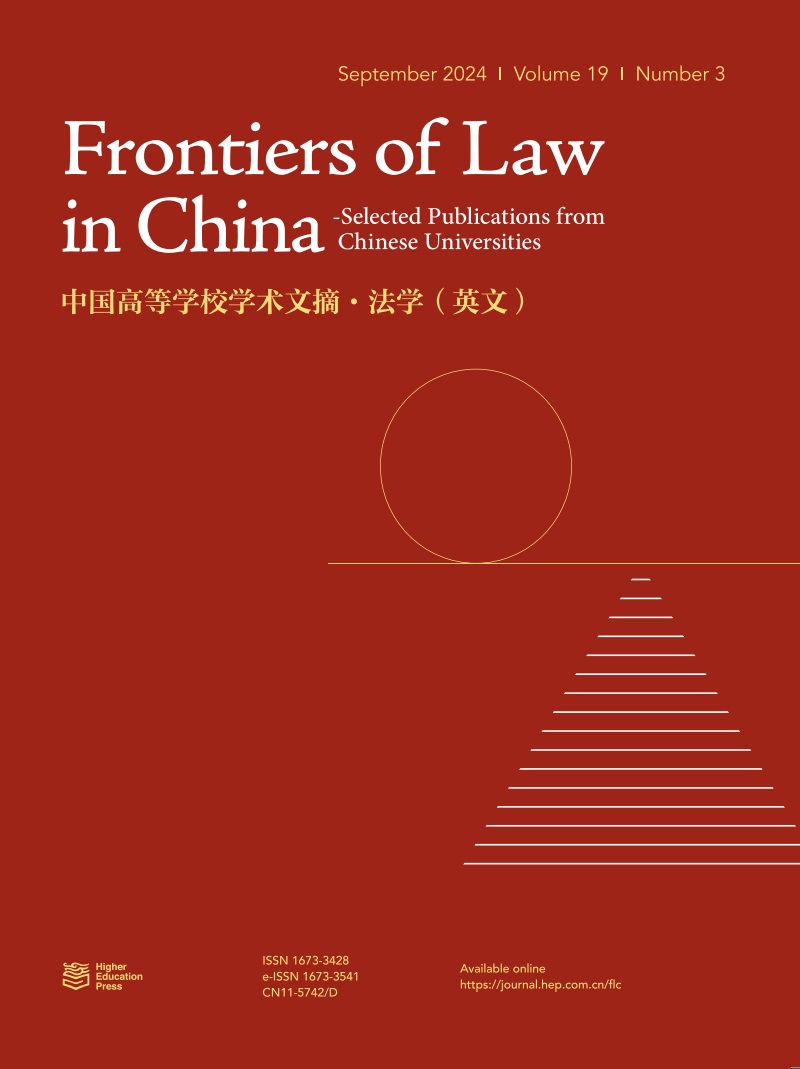数字时代的基本权利、横向效应与德国与欧洲宪政理论中的“国家”与“社会”之分
IF 0.1
4区 社会学
Q4 LAW
引用次数: 0
摘要
这篇文章讨论了“欧盟数字基本权利宪章”的提案,其核心内容是其基本权利不仅对国家当局具有约束力,而且对强大的私营互联网公司也具有约束力,这些公司在数字时代有可能侵犯国家的基本权利。这篇文章概述了德国传统的基本权利方法及其国家和社会之间的根本区别,这使得德国学者很难处理所谓的基本权利的横向影响。最后,文章讨论了对这种横向效应的主要反对意见,并指出了它在德国和欧洲宪法中可能引起的一些实际问题。本文章由计算机程序翻译,如有差异,请以英文原文为准。
FUNDAMENTAL RIGHTS IN THE DIGITAL ERA, HORIZONTAL EFFECT AND THE DISTINCTION BETWEEN “STATE” AND “SOCIETY” IN GERMAN AND EUROPEAN CONSTITUTIONAL THEORY
The article discusses the proposal for a "Charter of Digital Fundamental Rights of the European Union," whose central element is a binding effect of its fundamental rights not only to state authorities, but also to powerful private internet companies, which have a potential similar to that of the state to infringe on fundamental rights in the digital era. The article outlines the traditional German approach to fundamental rights and its underlying distinction between state and society, which makes it difficult for German scholars to handle a so-called horizontal effect of fundamental rights. Finally, the article discusses the main objections to such a horizontal effect and shows some practical problems it has the potential to cause in German and European constitutional law.
求助全文
通过发布文献求助,成功后即可免费获取论文全文。
去求助
来源期刊

中国法学前沿
LAW-
CiteScore
0.20
自引率
0.00%
发文量
398
期刊介绍:
Frontiers of Law in China seeks to provide a forum for a broad blend of peer-reviewed academic papers of law studies, in order to promote communication and cooperation between jurists in China and abroad. It will reflect the substantial advances that are currently being made in Chinese universities in the field of law. Its coverage includes all main branches of law, such as jurisprudence, constitutional jurisprudence, science of civil and commercial law, science of economic law, science of environmental law, science of intellectual property, science of criminal justice, science of procedural law, science of administrative law, science of international law, science of legal history, science of history of legal thoughts, etc.
 求助内容:
求助内容: 应助结果提醒方式:
应助结果提醒方式:


